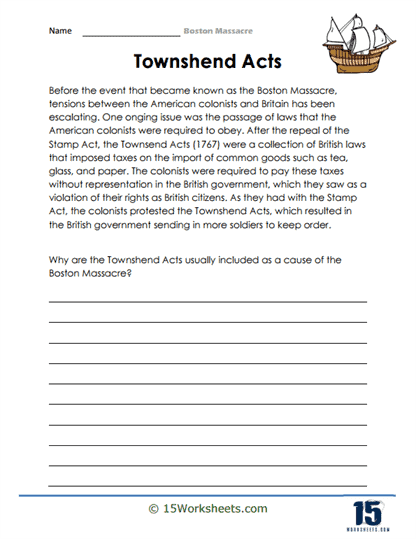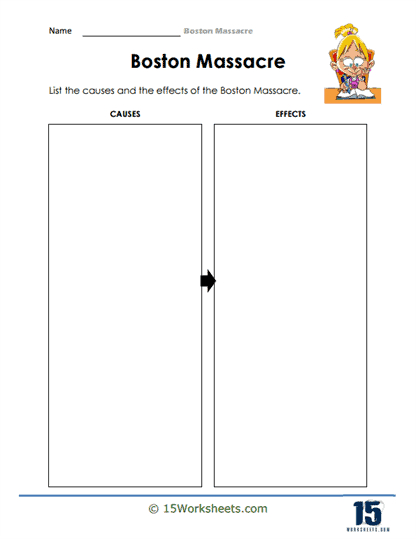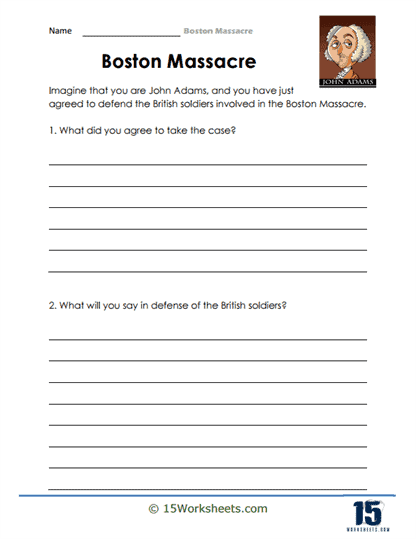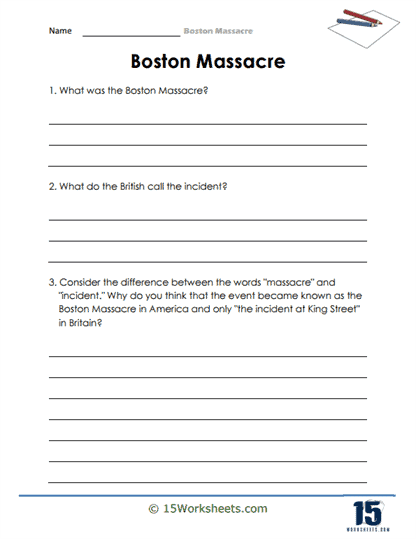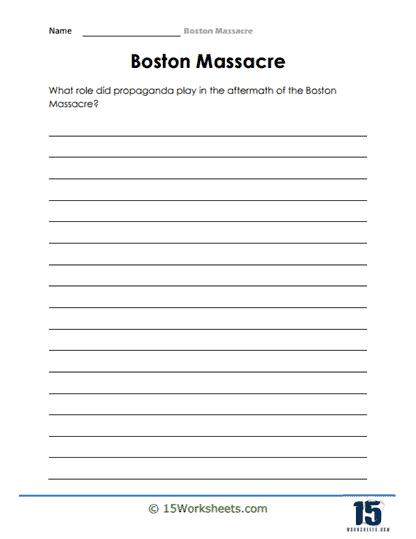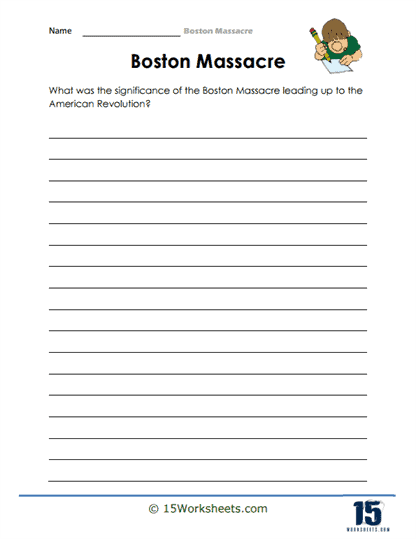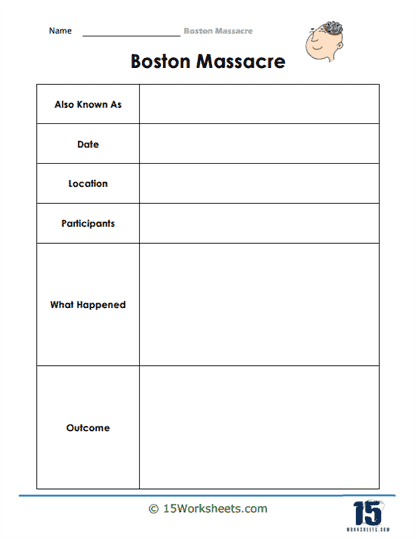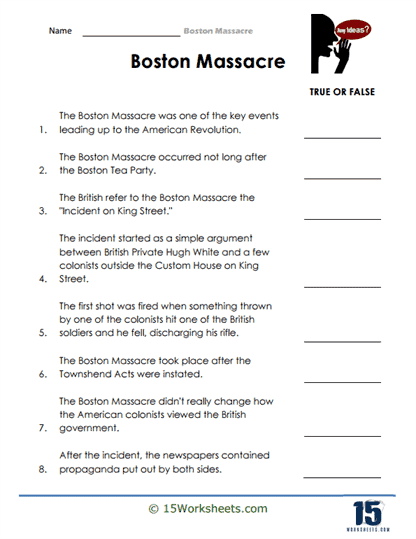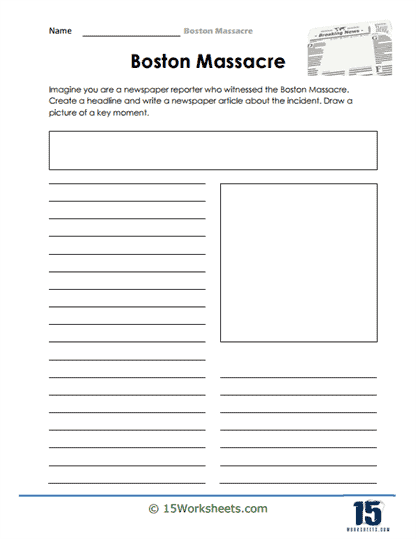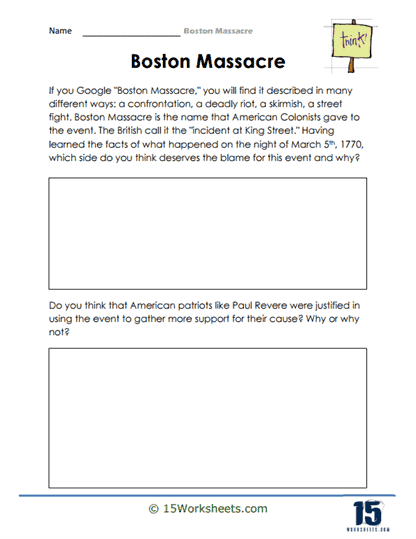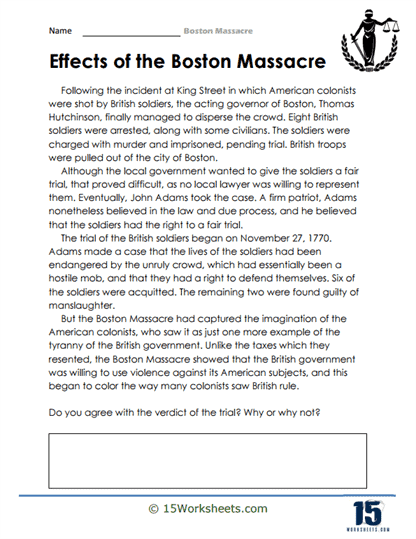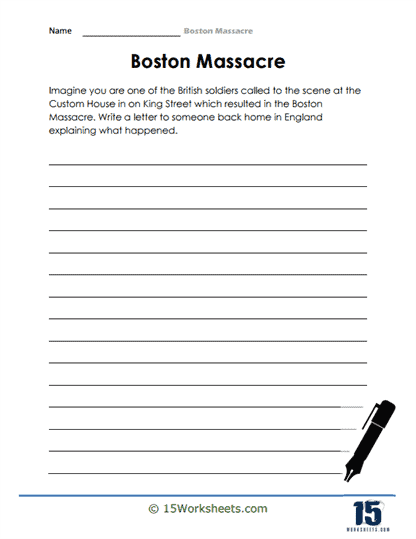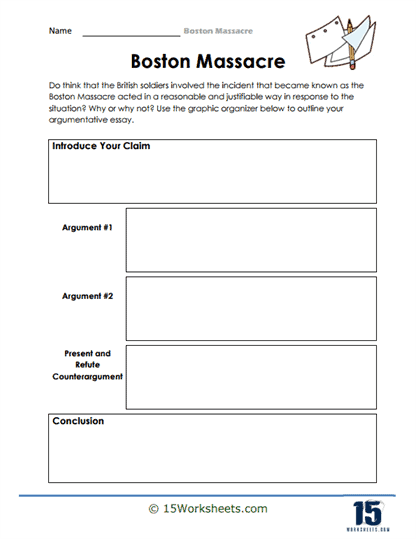Boston Massacre Worksheets
All About These 15 Worksheets
Students embark on a captivating exploration of a pivotal event in American history, the Boston Massacre, with this comprehensive series of 15 worksheets. This collection is designed to transport students back to the turbulent period leading up to the American Revolution, examining the causes, consequences, and historical significance of the Boston Massacre. With engaging activities and thought-provoking exercises, students will gain a deeper understanding of the tensions between colonists and British soldiers, the events of that fateful night, and the impact on the broader struggle for American independence. Through these worksheets, students will:
- Explore the historical context, key figures, and underlying causes that led to the clash between colonists and British soldiers;
- Investigate the causes and tensions that led to the Boston Massacre;
- List down the causes and effects of the Boston Massacre;
- Put the sequence of key events in order as they lead up to the American Revolution and describe what happened;
- Exercise their critical thinking skills as they investigate and reflect on the differences between what the historic event was called in America and in Britain;
- Understand the role of propaganda after the Boston Massacre;
- Use a graphic organizer to outline their own argumentative essay that expresses their stand on what transpired in the Boston Massacre;
- And hone their creativity in creating their own news headline and article, putting themselves in the shoes of someone who witnessed the incident.
Embarking on this series of worksheets will transport students back in time to the turbulent period of the Boston Massacre, fostering a deep understanding of its historical significance, the perspectives of those involved, and its impact on the trajectory of the American Revolution. Through creative activities and thought-provoking exercises, students will develop critical thinking skills, historical empathy, and a greater appreciation for the struggles and sacrifices that paved the way for American independence.
What was the Boston Massacre?
The Boston Massacre was a violent confrontation between British soldiers and American colonists that took place on March 5, 1770, in Boston, Massachusetts. The incident resulted in the deaths of five colonists and played a crucial role in galvanizing public opinion against British rule, ultimately contributing to the outbreak of the American Revolution.
Tensions between the British government and the American colonies had been escalating due to unpopular British policies such as the Stamp Act (1765) and the Townshend Acts (1767). These measures imposed taxes on the colonies without their consent, leading to widespread resentment and a growing sense of injustice. In 1768, British troops were stationed in Boston to maintain order and enforce the controversial tax laws.
On the evening of March 5, 1770, a confrontation occurred between a group of colonists and British soldiers near the Old State House in Boston. The situation quickly escalated as an angry crowd of colonists gathered, taunting the soldiers and throwing snowballs, rocks, and other objects at them. In the chaos, the British soldiers fired their muskets into the crowd, killing five colonists, including Crispus Attucks, Samuel Gray, James Caldwell, Samuel Maverick, and Patrick Carr.
How Did This Event Contribute to the American Revolution?
The Boston Massacre was a pivotal event that contributed to the American Revolution in several ways:
- Propaganda and public opinion – In the aftermath of the incident, American patriots such as Samuel Adams and Paul Revere used the Boston Massacre as propaganda to rally public opinion against British rule. Revere’s famous engraving of the event, which portrayed the British soldiers as ruthless aggressors, was widely circulated and stoked anti-British sentiment throughout the colonies.
- Legal proceedings and colonial unity – The British soldiers involved in the Boston Massacre were put on trial for murder. John Adams, who would later become the second president of the United States, served as their defense attorney, arguing that the soldiers had acted in self-defense. Although most of the soldiers were acquitted, the trial demonstrated the colonists’ commitment to the rule of law and their willingness to stand up to British authority, fostering a sense of unity and shared purpose among the colonies.
- Escalation of tensions – The Boston Massacre intensified the existing animosity between the colonists and the British government. In response to the incident, the British temporarily repealed the Townshend Acts, except for the tax on tea. However, this did little to quell the growing unrest, which eventually led to further confrontations, such as the Boston Tea Party (1773) and the subsequent implementation of the Coercive Acts (1774), ultimately culminating in the American Revolution.
In summary, the Boston Massacre played a crucial role in contributing to the American Revolution by rallying public opinion against British rule, demonstrating the colonists’ commitment to the rule of law, and escalating tensions between the colonies and the British government. This tragic event became a catalyst for the eventual struggle for independence that defined the birth of the United States.


